Here are 2 functions. One returns [Range<String.Index>], the other returns [Range<Int>]. If you don't need the former, you can make it private. I've designed it to mimic the range(of:options:range:locale:) method, so it supports all the same features.
import Foundation
extension String {
public func allRanges(
of aString: String,
options: String.CompareOptions = [],
range: Range<String.Index>? = nil,
locale: Locale? = nil
) -> [Range<String.Index>] {
// the slice within which to search
let slice = (range == nil) ? self[...] : self[range!]
var previousEnd = s.startIndex
var ranges = [Range<String.Index>]()
while let r = slice.range(
of: aString, options: options,
range: previousEnd ..< s.endIndex,
locale: locale
) {
if previousEnd != self.endIndex { // don't increment past the end
previousEnd = self.index(after: r.lowerBound)
}
ranges.append(r)
}
return ranges
}
public func allRanges(
of aString: String,
options: String.CompareOptions = [],
range: Range<String.Index>? = nil,
locale: Locale? = nil
) -> [Range<Int>] {
return allRanges(of: aString, options: options, range: range, locale: locale)
.map(indexRangeToIntRange)
}
private func indexRangeToIntRange(_ range: Range<String.Index>) -> Range<Int> {
return indexToInt(range.lowerBound) ..< indexToInt(range.upperBound)
}
private func indexToInt(_ index: String.Index) -> Int {
return self.distance(from: self.startIndex, to: index)
}
}
let s = "abc abc abc abc abc"
print(s.allRanges(of: "abc") as [Range<String.Index>])
print()
print(s.allRanges(of: "abc") as [Range<Int>])
